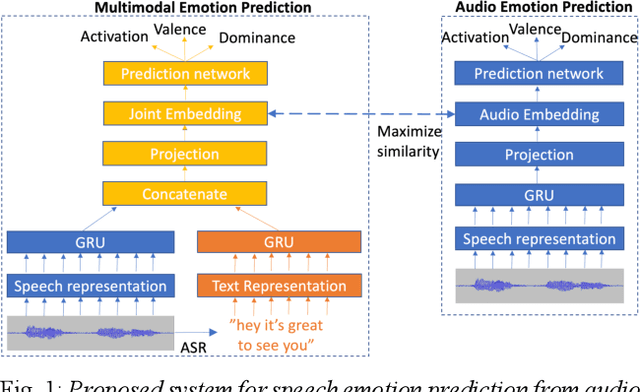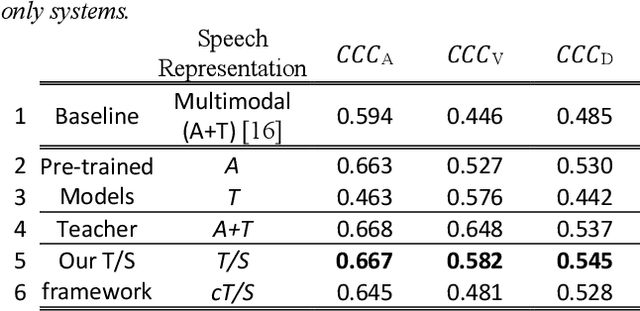Zhaocheng Huang
End-to-End Single-Channel Speaker-Turn Aware Conversational Speech Translation
Nov 01, 2023



Abstract:Conventional speech-to-text translation (ST) systems are trained on single-speaker utterances, and they may not generalize to real-life scenarios where the audio contains conversations by multiple speakers. In this paper, we tackle single-channel multi-speaker conversational ST with an end-to-end and multi-task training model, named Speaker-Turn Aware Conversational Speech Translation, that combines automatic speech recognition, speech translation and speaker turn detection using special tokens in a serialized labeling format. We run experiments on the Fisher-CALLHOME corpus, which we adapted by merging the two single-speaker channels into one multi-speaker channel, thus representing the more realistic and challenging scenario with multi-speaker turns and cross-talk. Experimental results across single- and multi-speaker conditions and against conventional ST systems, show that our model outperforms the reference systems on the multi-speaker condition, while attaining comparable performance on the single-speaker condition. We release scripts for data processing and model training.
Representation learning through cross-modal conditional teacher-student training for speech emotion recognition
Nov 30, 2021


Abstract:Generic pre-trained speech and text representations promise to reduce the need for large labeled datasets on specific speech and language tasks. However, it is not clear how to effectively adapt these representations for speech emotion recognition. Recent public benchmarks show the efficacy of several popular self-supervised speech representations for emotion classification. In this study, we show that the primary difference between the top-performing representations is in predicting valence while the differences in predicting activation and dominance dimensions are less pronounced. However, we show that even the best-performing HuBERT representation underperforms on valence prediction compared to a multimodal model that also incorporates text representation. We address this shortcoming by injecting lexical information into the speech representation using the multimodal model as a teacher. To improve the efficacy of our approach, we propose a novel estimate of the quality of the emotion predictions, to condition teacher-student training. We report new audio-only state-of-the-art concordance correlation coefficient (CCC) values of 0.757, 0.627, 0.671 for activation, valence and dominance predictions, respectively, on the MSP-Podcast corpus, and also state-of-the-art values of 0.667, 0.582, 0.545 on the IEMOCAP corpus.
 Add to Chrome
Add to Chrome Add to Firefox
Add to Firefox Add to Edge
Add to Edge